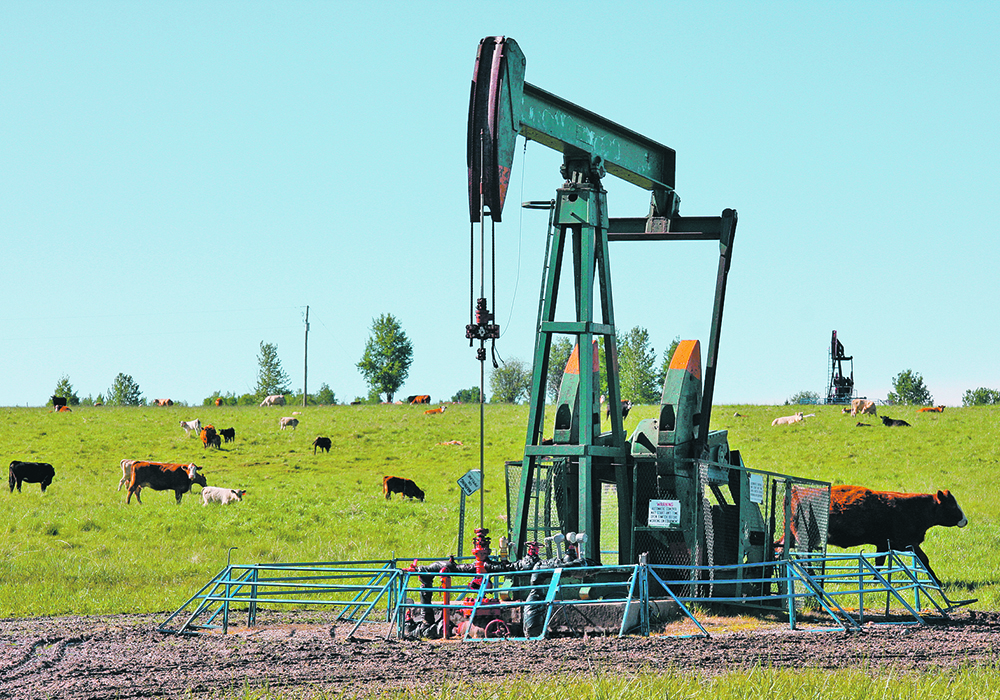An Alberta judge has overturned in decisive fashion a Surface Rights Board’s decision to limit a farmer’s compensation to half the agreed amount.
Vulcan farmer Wayne Bateman sought the judicial review of the board decision, which found the farmer was only entitled to half the $2,700 annual payment between 2015 and 2019 on four acres of land that formed a natural gas site on his property.
According to the reasoning of the board’s decision, the reduced amount was because Bateman farmed part of the area after the company that owned the well went bankrupt and he seeded the marginal land around the gas well to control weeds.
Read Also

Crop quality looks good this year across Prairies
Crop quality looks real good this year, with the exception of durum.
In her decision against the Surface Rights Board (now known as the Land and Property Rights Tribunal) Court of King’s Bench Justice Nancy Carruthers’ ruling was emphatic.
“Even if the SRB and (Land and Property Rights) Tribunal had properly interpreted its authority, the SRB decision suffered from a lack of justification, transparency and intelligibility in determining the reduction of Mr. Bateman’s compensation,” ruled Carruthers.
The rebuke of the provincial government board’s decision found that it did not merit being returned to the Land and Property Rights Tribunal for reconsideration as its initial decision was not properly considered, “and there did not appear to be any reason to find that full compensation was unjustified, patently absurd or provided unjust enrichment.”
Bateman’s counsel cited the 1972 decision by the Alberta government to forego requiring a security bond from oil and gas companies to protect landowners’ rights when it came to surface leases and shift that financial burden to taxpayers if a company became insolvent.
That provision is covered under Section 36 of Alberta’s Surface Rights Act while remediation of such wells falls under the responsibility of the Orphan Well Association.
The court also heard evidence of a dramatic increase in Section 36 applications, which has seen the Property Rights Tribunal’s workload increase from 1,800 cases in 2017 to more than 6,000 in 2021.
“The tribunal suggests that processes were changed to become more pragmatic and expeditious but it does not explicitly justify reduced payments on the basis of increased numbers of Section 36 applications. It states instead that the process favours the landowner in the usual case and suggests that the panels are considering whether the evidence supports a finding of unjust enrichment,” noted Carruthers in her decision.
The court also heard evidence the Property Rights Tribunal is requiring more information from Section 36 applicants than the historical requirement of proof of a lease and non-payment.
A submission by the counsel for Bateman said the additional information is being used as a pretext for reducing compensation amounts required to be paid by the government.
Carruthers also highlighted the tribunal’s arbitrary decision to have the government pay the full amount of the outstanding lease payment on the same land for 2020.
Ron Huvenaars, chair of the Action Surface Rights organization that advocates for Alberta landowners, said the decision to award Bateman his outstanding lease payments highlights the plight of producer dealings with energy companies.
“We’d hope the government would treat itself the same way it treats the energy companies whenever there’s a Section 36 (application) when an energy company is involved. They usually tell the energy company that full compensation has to be made,” said Huvenaars.
He said he is hopeful the current government will be more aggressive in dealing with the issue of abandoned oil and gas wells based on the controversial R-Star program floated by Premier Danielle Smith but concrete action on the concern has yet to be taken.


















